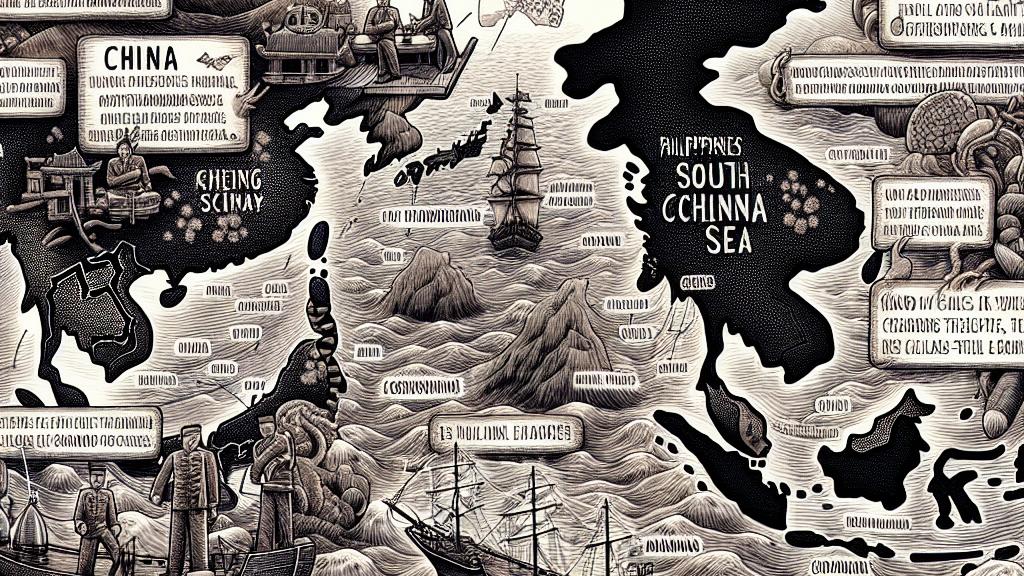Tensions Rising in East and South China Seas
Overview
- Territorial disputes highlight deep-rooted geopolitical tensions among nations.
- China's aggressive strategies provoke considerable unrest in the region.
- Key maritime areas are vital for global trade and enriched with resources.

Understanding the Geopolitical Landscape
In recent times, the East and South China Seas have emerged as crucial arenas of geopolitical conflict, characterized by layered disputes and historical grievances. Let's start with the East China Sea, where Japan and Taiwan are embroiled in ongoing tensions over the Senkaku/Diaoyu Islands, a territory steeped in controversy and national pride. In the South China Sea, the stakes are even higher, as China asserts its claims over roughly 90% of the waters, leading to confrontations with countries like Vietnam, the Philippines, and Malaysia. Notably, trade routes that traverse these sea lanes are essential for the global economy, with an astonishing $3.4 trillion in trade passing through annually. Considering the rich deposits of oil and natural gas that lie beneath the waves, it's no wonder that these maritime areas are viewed not just as strategic territories but also as valuable assets that nations are eager to control.
China's Bold Actions and Regional Backlash
China's approach can be described as aggressive and calculated, driven by a desire to protect its interests and bolster national security. For example, recent incidents involving the Chinese Coast Guard blocking Philippine supply ships at the Second Thomas Shoal have ignited outrage among Filipinos and sparked widespread condemnation from the international community. This clear demonstration of assertiveness does not merely threaten regional stability; it also incites anxieties among other Southeast Asian nations who fear similar encroachments. Allies like the United States are thus drawn into this complex matrix, pledging support for these nations while navigating a delicate balance. The importance of free navigation cannot be overstated, as it remains vital for both economic prosperity and international law, and so U.S. naval operations in the area aim to reinforce this principle, even as they heighten tensions with China.
Broader Global Implications and Future Prospects
The implications of these maritime disputes reverberate on a global scale, affecting trade, diplomacy, and security strategies. As tensions continue to rise, the risk of confrontation looms large; even minor skirmishes could escalate into significant conflicts that draw in multiple countries. Take, for instance, the precarious situation involving fishing rights near disputed territories—where someone’s catch could lead to a diplomatic debacle. The world is closely monitoring these developments, understanding that how these disputes unfold will shape the balance of power in Asia and beyond. In light of the rising stakes, countries must navigate their interests carefully to maintain peace while striving to uphold international norms. Ultimately, the challenges posed by these maritime disputes call for collaborative dialogues, conflict resolution, and a commitment to preserving stability in a region rich in history, culture, and potential.

Loading...